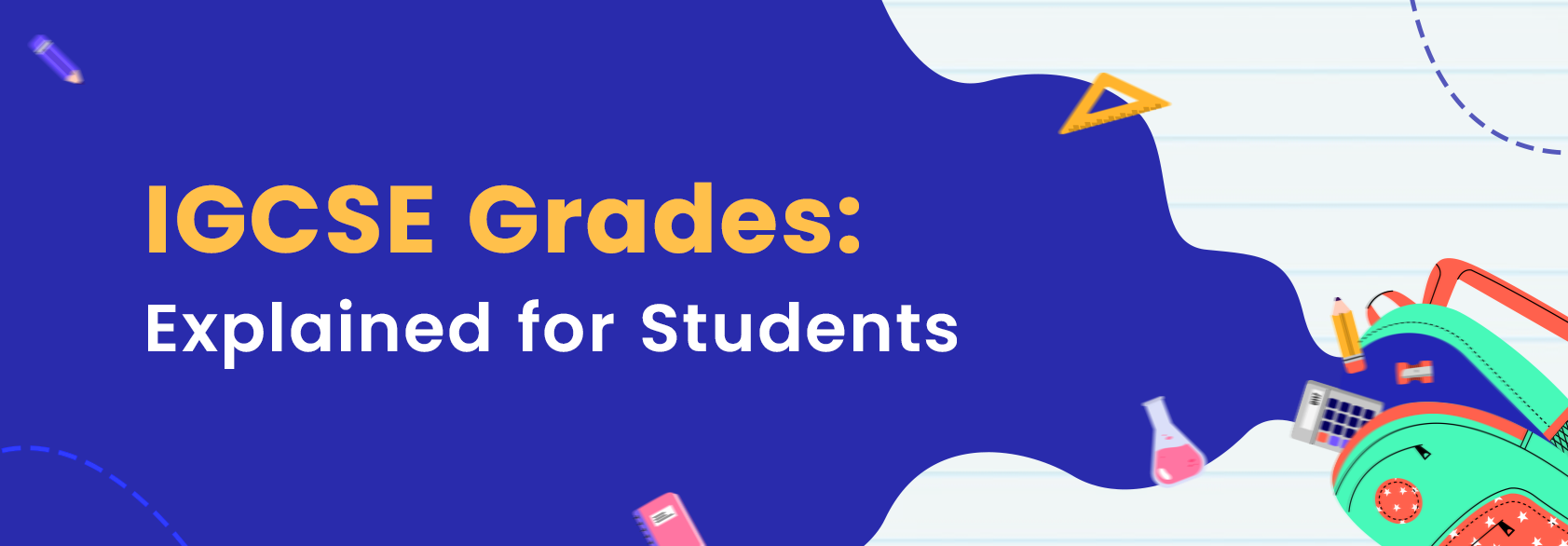If you're currently preparing for your IGCSE examinations or just starting out, it's normal to feel a bit overwhelmed at first.
“What does the IGCSE curriculum provide? How does the grading system work? And more importantly, how can I score well? “
These are some of the most common questions students ask.
In this blog, we’ll break everything down, from understanding the IGCSE curriculum to proven strategies for boosting your grades, and where you can find the best past paper resources to practice effectively and ace your exams.
What does the IGCSE Curriculum Provide?
The International General Certificate of Secondary Education (IGCSE) provides an internationally recognised qualification for students aged 14 to 16.
Both Cambridge (CAIE) and Edexcel offer the IGCSE, an internationally recognised qualification that meets the standards of the UK GCSE but is designed for students around the world.
The IGCSE curriculum provides a strong base for Mathematics, English, Physics, Biology, Chemistry, Economics, and others, preparing students for further studies at A-Level, the International Baccalaureate (IB), or equivalent programs.
Why is it important? Universities worldwide and major employers recognise this qualification because it upholds their talent. This program targets two educational dimensions through its design by teaching subject matter alongside critical thinking abilities.
IGCSE Grading System: A* to G or 9 to 1?
IGCSE exams are graded in two formats:
A* to G (with A* being the highest)
Or the 9 to 1 system (where 9 is the top grade)
Both grading systems are recognised by universities, so students are not at a disadvantage regardless of which scale they aim for.
| A*-G grades | 9-1 grades |
|---|---|
A* A | 9 8 7 |
B C | 6 5 4 |
D E F G | 3 2 1 |
| U | U |
| Grade | Percentage |
|---|---|
| A* | 90-100% |
| A | 80-89% |
| B | 70-79% |
| C | 60-69% |
| D | 50-59% |
| E | 40-49% |
| F | 30-39% |
| G | 20-29% |
| U | 0-19% |
How to Score Better in Your IGCSE Exams
Enhancing your IGCSE grades requires more than hard work because you need to study effectively. You can use these tested methods, and you are one step closer to succeeding in your exams.
| Strategy | Description |
|---|---|
| Know what topic you are reading | Know exactly what the exam will cover. |
| Make a revision timetable | Stick to a daily plan that covers all subjects. |
| Practice past papers | This is key! Practicing past test papers helps you understand question patterns and improve time management. |
| Use active recall techniques | Flashcards, self-quizzing, and spaced repetition work wonders. |
| Join study groups | Learning with peers boosts memory and morale. |
| Use Visual Aids | Use visual tools like mind maps and charts to organise information, making complex topics more manageable and aiding memory retention. |
Best Place to Find IGCSE Past Papers
If you are confused about where to find past papers, visit ciepastpaper.com, where you can find:
- Yearly compiled papers, structured, session-wise papers
- Complete library of past papers
- Includes marking schemes and examiner reports
- Easy-to-use interface with all years and subjects
- Regularly updated with the latest exams





